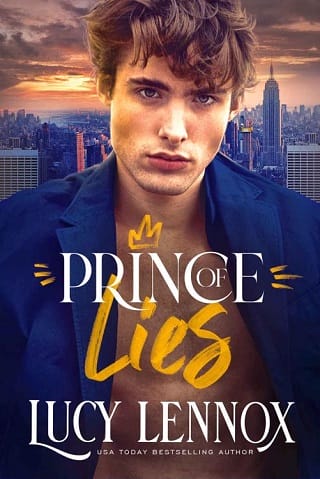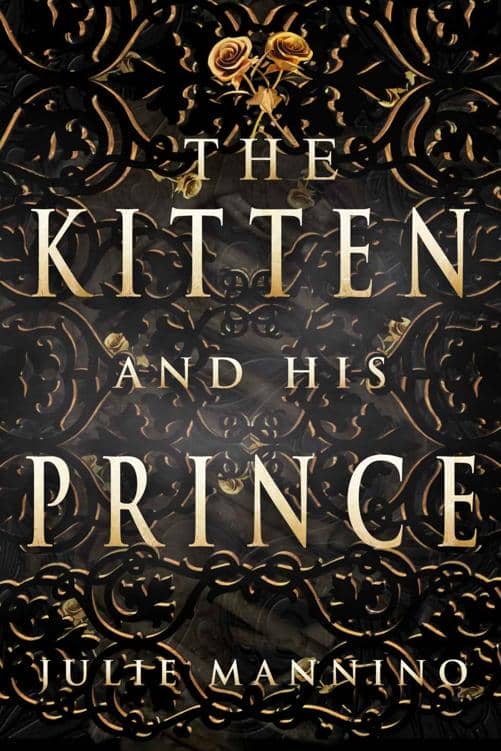Chapter 71
It is not my goal to begin a new religion, or to inspire a division in Vorinism. However, I insist that when I was at my darkest moments, there was something there with me, and it was not the being we called the Almighty. He is dead. And even if he were not, I would find his actions increasingly suspect.
—From the epilogue to Oathbringer, by Dalinar Kholin
S zeth finished his circuit of the pool of light in the Lightweaver monastery, calm sun from above falling on those thirty illusory figures. How would he pick out the right one? Looking closely, he spotted tiny differences between the figures: hair parted differently, eyes different colors, sashes on dresses forming different bows.
He studied each one, and sweat began to drip down his face. He couldn’t tell which was “perfect” and which was not. Storms … how could he ever beat a Lightweaver at their own tricks? He could come to only one conclusion. He should strike randomly and trust in fate. He summoned his Blade, and knew he would fail.
“Hmmm …” a feminine voice said in his ear.
He glanced to the side and saw nothing.
“Yeah,” Syl whispered, “tricky Lightweavers with their tricky ways. Well, if your spren won’t help, I will.”
“You … shouldn’t be here,” Szeth whispered.
“Nale said Kaladin can’t help you, but he didn’t say anything about me. I’m a god, aren’t I? Piece of one?”
“Of course.”
“Do you not pray to gods for help?”
“Yes.”
“So …”
He thought barely a moment. “Will you please help?”
“Gladly,” she whispered. “Keep your voice down, don’t mention my name, and let them assume you’re talking to your spren.”
“Follow the rules though. Don’t touch them.”
“Fine, fine. Let’s walk along this row here. Hmmm … They’re each different. Just barely.”
“We’re to find which one is perfect. But how do we know which is the ‘perfect’ representation of a Herald? Half have green eyes, half have violet.”
“Exactly half and half?”
He considered, then counted. “Sixteen violet. Fourteen green.”
“That seems deliberate. Can we infer something from that? Quick, count how many have their hair parted on the left, and how many on the right.”
He did so. Again sixteen and fourteen. Same with bows—sixteen tied in an extravagant knot, fourteen in a simple one.
“So,” Syl said, “do we think the ‘correct’ Ash will have the more common trait, or the less common one?”
“Perfection is rare,” he said, “so the less common one?”
He disliked guessing when it involved something this important … but he supposed he’d been ready to strike randomly. Syl’s aid eased his tension, and he found himself exceptionally grateful for it. Together the two talked it over, and through a process of elimination found one version of Shush who had each of the most rare traits. Green eyes, part on the left, bow a simple knot, ring on her finger … all the way through the various attributes.
They stopped in front of this one, the third from the left in the back row. Szeth prepared his sword.
Then hesitated. What was wrong?
“Does this …” Syl said in his ear, “feel too easy to you?”
“It does.”
“Do you know much about the person who set this up?”
“Yes.”
“And what kind of person are they?”
“Too smart,” Szeth said. “And sure of their cleverness. Like most Lightweavers I’ve met.”
Syl thought a moment. “Yeah, there’s a zero percent chance we solved the riddle this easily. I’d bet my left ear—I’ve never liked that one—that we are supposed to choose this illusion. Not because it’s right, but because it’s the most obvious choice.”
“Then what do we do?” Szeth whispered.
“We need to go a layer deeper,” Syl said. “We need to discard obvious choices.”
“Then how will we ever know?” Szeth asked, walking to the end of the row, then peering down the line of near-identical versions of the demigod. “Moss is smarter than I am. He’ll have considered every option.”
“I’m thinking …”
“Their faces have small moles,” Szeth said, walking back down the line. “Maybe we find the one without such a blemish? Except I find that too obvious as well.”
“Yeah,” Syl said, “and not even really accurate. What about a mole makes someone less perfect? That’s another way for us to assume we’ve cracked the code, only to lose. I think.”
Her uncertainty mirrored his own. Whatever solution he pondered … it seemed flimsy, surface-level. Finding the one Shush who was out of step with the others? Finding the one that had her head straight, when others were cocked slightly? Any of these could be the solution, but how did that make them intrinsically any less perfect?
Knowing Moss …
“He’ll want to win no matter what choice I make,” Szeth said. “That’s the kind of puzzle this is, isn’t it? The kind he can’t lose, no matter which option I choose.”
“Aaaah …” Syl said. “You’re almost certainly right, Szeth. What exactly did he say at the start?”
“He said almost all of the illusions were imperfect in some way. But one was him, hidden behind a face that was instead perfect.” He paused. “He also said he was in the circle of light, so he’s not hiding somewhere else in the room.”
“Yeah,” Syl said. “He wouldn’t lie, because that would look like cheating. It’s not a riddle if you couldn’t conceivably find the answer. Hmm … just a second.” A moment later she said, “Fly up above them, Szeth. Let’s see if they make an interesting pattern.”
He Lashed himself into the air, in front of the skylight, casting a shadow on those below. Together he and Syl studied the array of five rows of six.
“I don’t see anything,” Szeth said.
“You trained with this Lightweaver, didn’t you? Is there some clue in your training?”
“It was a long time ago,” Szeth said. “And I was never very good at it.” Yet it would be just like Moss to reference some idle bit of instruction, these many years later. “I was taught,” he said after mulling it over, “that one theme of Lightweaving is subterfuge. It’s not about perfection, as no illusion can be perfect. He and I agreed on that. So all of those illusions are imperfect, by their nature.”
“But he stated he was one of the figures,” Syl said.
“Well, he said he was hiding behind one of the versions of Shush. ‘One is me, hidden behind a face that is instead perfect …’”
He gazed down from this lofty position, and saw it. As in the other monasteries, there was an old mural on the floor depicting one of the Heralds. Here, the face of Shush. Set upon stone. That which was perfect.
“Storms,” Syl said. “The floor!”
Szeth needed no further proof. He summoned his Blade and dropped, stabbing straight into the floor tiles, right through the eye.
“Szeth!” Syl said in his ear. “That was impulsive!”
“You saw it as I did,” he said, watching as the Lightweavings of the figures broke apart, revealing a group of exhausted, bleary-eyed, and somewhat dazed acolytes.
Acolytes? Szeth thought. He used people behind the faces of Shush? Why? That seemed particularly brutal of Moss. If Szeth had struck one of those, he’d have killed them.
“We could have talked it through or something,” Syl said, remaining invisible as she spoke into his ear.
“And given him time to realize we’d figured it out?” Szeth said, looking down at the floor—which he sliced apart, opening a dug-out section in the stone beneath the mural. Moss’s clothing lay inside; upon being stabbed, he’d evaporated into darkness like the others, leaving his Blade. Szeth cut through enough stone to pick that up: a Blade with wave patterns along the back, and a round hole in the pommel.
“I still think it was a little brash,” Syl said.
“Sometimes,” Szeth said, hefting the sword, “you simply have to make a decision.”
As Kaladin and Nin approached, he realized that those words were absolutely true.
Jasnah found a peaceful place to think in an unlikely location. A temple.
When her uncle, Dalinar, had been in this city, he’d used his powers to restore an ancient temple. Jasnah still didn’t understand how he’d managed it; the Bondsmith powers worked so oddly. Granted, each Radiant order was proving that their specific applications of the Surges could be unusual, but Bondsmiths were on another level entirely.
The restored temple to Talenelat was now viewed as a holy site beyond even others in Thaylen City, and it was reserved for Radiants to use. As her rooms in the city had, by her request, been placed near those of the other generals … well, if she wanted somewhere quiet, this was perfect. No one would bother her in this solemn circular chamber, decorated with murals and stone glyphwards praising the Almighty.
Jasnah set up at the rear of the chamber, between two pillars and near a relief depicting Taln, the Bearer of Agonies. They mostly got his features right. A surgical table and chairs had been placed here, as this room was used for healings when an Edgedancer or Truthwatcher was in the city.
She set her notebooks and papers on the surgical table, but did not sit. An electric current seemed to run through her, like the kind one could create with that old experiment using brine-soaked cloths and different kinds of metals. Caged lightning. During a scientific summit in her youth, she’d seen a researcher use that process to make the muscles of a cremling twitch after it was dead.
She walked around the surgery table, her mind buzzing. Odium knew this city could not be broken without extreme loss of life. Indeed, even with extreme loss of life, he would almost certainly fail here. Thaylen City was barely worth attacking. Yet he was coming with large numbers, and was giving himself only a couple of days to capture the city.
What was she missing?
What were they all missing?
Ivory grew to full size, hand on his dueling sword, watching her with obvious amusement. He stood by the doors, lounging—a figure entirely of inky-black marble, with an oil-on-water iridescence when the light hit just right.
He gave her space and quiet to think. Unfortunately, now that she was here … she found answers elusive. She wrote down logical questions to consider, as prescribed by her formal training, drawing a swarm of logicspren like little thunderclouds.
Each idea led to answers that felt wrong. Emotional Core Theory taught her to look toward what drove participants: What emotions might be causing them to act as they did? Was there an intangible, emotional reason that Odium wanted this city? Perhaps failing to take it a year ago still rankled, and so he’d come for vengeance.
Yet this was a new Odium—and while the power might want vengeance, who knew what the new Vessel wanted? She was on shaky ground to assume she could reason their motives. Plus, she’d never liked assuming that her opponents were making mistakes. Yes, it was important to recognize and exploit missteps, but underestimating foes was a bad habit that led to worse surprises. If you instead assumed your enemies were making the right decisions—and you countered them anyway—then you were often led to important realizations.
Assuming competence from her enemy, what was her next step? Perhaps formalist theory: lay out your premises and try to construct the next logical move. However, that felt too much like what they’d been doing with the generals—they could plan for eventualities better than she could. She needed to uncover what they weren’t seeing.
This led her to economic theory. It taught her to follow the incentives. Were there intangibles to be gained by attacking here? Storms. Was Odium simply diverting their forces? Drawing their limited resources away from battles that could be lost, instead committing them to a fight they were already likely to win?
That seemed a useful hypothesis. She sat and explored it, writing notes, as logicspren swirled around her hand. Fen was one of their two strongest allies. She was also loud and brash, and demanded help for a city that had already been through so much. The coalition was more likely to devote resources to Thaylen City so that it didn’t have to rebuild a second time. Yes … all this could lead them to overcommit to defending this city.
Could this attack actually be a way to make certain the other two assault points—Azimir and the Shattered Plains—were denied resources? Here, she found problems with her premise. If your goal was merely to divert forces from other battles, then why would you divert your own forces in the same way?
Perhaps these were troops that couldn’t be used elsewhere? No … those forces could have sailed through Shadesmar to Azimir, right? Maybe there weren’t mandras available to pull ships that far in time? And what about the Shattered Plains? With the Everstorm blowing them, could the enemy have delivered these troops to that battlefield in time?
She did calculations, and felt she might be on to something. But after an hour of thinking, looking up numbers, and writing out her thoughts … she was beginning to hit a wall.
“Ivory,” she said, “distract me.”
He was used to this. “A temple,” he said from where he stood at full size near the doorway. “You come to a temple to think?”
“It’s quiet. And beautiful.”
“Even after all these years,” he said, “I do not always understand the person you are, Jasnah. Shouldn’t this place make you angry? You deny the divinity at the very foundation of its religion. You deny the faith of the people who built it.”
“Small quibble,” she said, “but I do not deny that the people who built this had faith. Nor do I deny that faith’s power to inspire.”
“But you are in opposition to their god.”
“A larger quibble,” she said. “I’m not in opposition to their god, because their god—as they imagine him, all-powerful and all-knowing—does not exist. I can no more be in opposition to that than I am to an imaginary childhood friend—you cannot wrestle with, fight, or oppose something that does not exist. I oppose the assumptions that people make. Because if you start with faulty assumptions …”
Well, Damnation.
Faulty assumptions.
She’d forgotten a basic tenet of any logical dissection: examine your premises. What were hers? She held up a finger to stall Ivory, who—again—was used to this sort of thing.
Premise One: That Odium truly wanted to take this city. That appeared reasonable, from all they knew.
Premise Two: That the city was well-defended. This seemed a strong premise—at least, she trusted the admirals and generals.
What else? What was she missing?
It hit her like thunder.
Premise Three: she wrote. That there are actually storming troops coming this way.
In a cold sweat, she saw their mistake. Ships coming this direction didn’t mean troops. Even if scout reports had seen people crowding the decks, implying far more people underneath … that didn’t mean there were troops on the way. Fen had been shocked the enemy had been able to raise an army to assault her city. What if he hadn’t ? What if he had ships—the navy from Vedenar, and stolen ships from Thaylen City itself—and people to dress up in costumes … but no actual troops? What would he do in that situation?
He’d send a fleet this way. Slowly. To make his enemies dig in, divert resources … and wait for an army that wasn’t really coming.
She stood up, her eyes wide.
“You have it,” Ivory said. “The answer is ?”
“The hypothesis is. I need our Windrunner scouts to do something potentially dangerous, but potentially vital.” She looked up. “I need them to get very, very close to those ships.”
 Fullepub
Fullepub 



